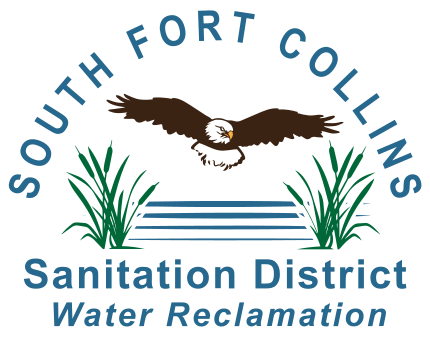Fats, Oil and Grease (FOG) Program
South Fort Collins Sanitation District (SFCSD) Industrial Pretreatment Program ensures that all local, state and federal regulations and standards are met regarding the quality of wastewater discharged into the City’s sanitary sewer system and wastewater treatment facility. Depending on the type of business, certain facilities may be required to “pre-treat” their wastewater prior to discharge into the sewer. “Pretreatment” means installing, operating and adequately maintaining pretreatment devices and/or systems to remove pollutants that could otherwise damage or obstruct the wastewater collection system or interfere with the wastewater treatment process. Pretreatment devices include gravity grease interceptors utilized to remove excess fats, oils and grease (FOG) from food service establishments, or sand/oil interceptors to remove excess grit, sand and petroleum oils from manufacturing facilities, auto shops, car washes and other operations.
SFCSD has implemented policies to ensure businesses required to pretreat their wastewater understand local regulations. Find more information on the different programs below.
2024 01 17 FOG Policy.pdfFOG Program
Restaurants and other food establishments can produce fats, oils, and grease (FOG) through routine cooking and cleaning activities. If improperly managed, these materials can clog sewer pipes, resulting in backups into the facility, damage to the collection lines or sewage overflows in nearby areas.
A grease interceptor is used to remove FOG from water used for food preparation, dish cleaning, hand washing, and other activities before it enters the sanitary sewer. Along with best practices to manage your grease, remember to use a state-certified grease hauler to properly pump and maintain your grease interceptor every 90 days, at a minimum.
All new food service establishments are required to send construction drawings of the facility to their local sewer agency. Plans will be reviewed by SFCSD staff for compliance with the FOG Policy.
Best FOG Management Practices
In order to manage FOG and prevent sewer blockages, backups, and overflows, food service establishments must follow the best management practices below:
- Use drain screens
- Dispose of food waste in the trash
- Dry-wipe all cookware
- Use a grease receptacle for used cooking oils
- Keep cleaning products away from drains
- Employees must be trained to employ these best practices
